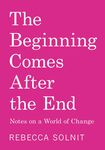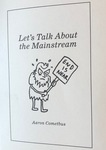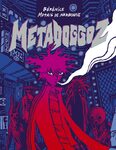
We knew it was only a matter of time until a book like this showed up on our shelves. To anyone interested in getting started in digging deeper into the amazing riches buried beneath the surface of the comics page, Heer and Worcester's A Comics Studies Reader is one of the best shovels money can buy. Sure to become the default primary source text for many a Comics Studies 101 class -- as well as becoming the go to text for the comics unit in pop culture classes -- CSR is provides a number of different critical approaches to the subject, in the process providing its readers with some valuable interpretive tools. Following the editors' introduction and Thierry Groensteen's overview essay, "Why Are Comics Still in Search of Cultural Legitimization?", the book is divided into four sections, each of which receives its own editorial intro: Historical Considerations; Craft, Art, Form; Culture, Narrative, Identity; Scrutiny and Evaluation. While everyone will doubtless have their own ideas about what should constitute a volume such as this, and there are certainly writers whose work we were disappointed not to see included, second guessing is easy. This is a fine survey of the burgeoning field of critical approaches to comics that serves its primary purpose quite well: to stimulate the intellects of students and scholars of all stripes and hep the rest of the world to what we've known all along: comics contain a motherlode of cultural treasures that will amply reward any and all who dedicate themselves to its study.

We knew it was only a matter of time until a book like this showed up on our shelves. To anyone interested in getting started in digging deeper into the amazing riches buried beneath the surface of the comics page, Heer and Worcester's A Comics Studies Reader is one of the best shovels money can buy. Sure to become the default primary source text for many a Comics Studies 101 class -- as well as becoming the go to text for the comics unit in pop culture classes -- CSR is provides a number of different critical approaches to the subject, in the process providing its readers with some valuable interpretive tools. Following the editors' introduction and Thierry Groensteen's overview essay, "Why Are Comics Still in Search of Cultural Legitimization?", the book is divided into four sections, each of which receives its own editorial intro: Historical Considerations; Craft, Art, Form; Culture, Narrative, Identity; Scrutiny and Evaluation. While everyone will doubtless have their own ideas about what should constitute a volume such as this, and there are certainly writers whose work we were disappointed not to see included, second guessing is easy. This is a fine survey of the burgeoning field of critical approaches to comics that serves its primary purpose quite well: to stimulate the intellects of students and scholars of all stripes and hep the rest of the world to what we've known all along: comics contain a motherlode of cultural treasures that will amply reward any and all who dedicate themselves to its study.










